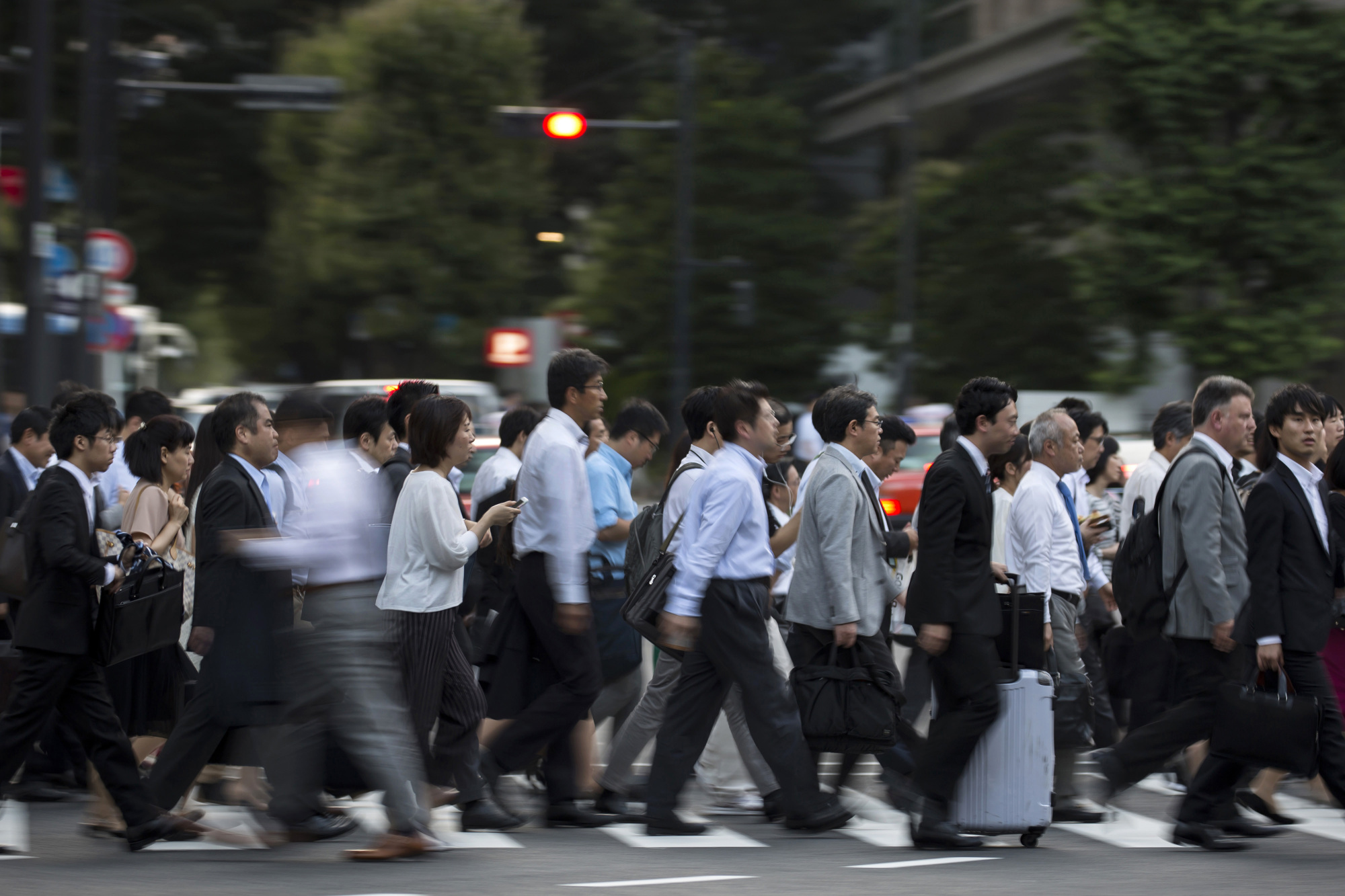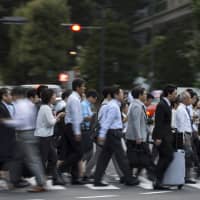Most Japanese companies have no plans to utilize a new government scheme that removes work hour limits for some highly paid professions, a Kyodo News survey showed Saturday.
Only 13 of 113 major firms that were polled are even considering adopting the "high-level professional system," a key pillar of Prime Minister Shinzo Abe's sweeping labor reforms set to come into effect in April.
The scheme, which applies to white-collar workers such as financial dealers and researchers who earn at least ¥10.75 million a year, has faced criticism from opposition lawmakers and activists as opening the way for longer hours in a country that is plagued with karōshi, or death from overwork.
Among the 49 companies who expressed no interest in the scheme, the most common reason was that they did not have any workers who would be eligible.
Reasons cited by the 13 companies in favor included expectations of improved productivity. Many were financial institutions, while some manufacturers said they hope the scheme will eventually cover a wider range of professions.
Forty-six firms said they were undecided, though some expressed concern that it will lead to some staffers working longer hours.
Meanwhile, 53 — or nearly half of the companies — polled in July were in favor of expanding the "discretionary labor system," a scheme already in place that allows employers to pay workers based on a fixed number of overtime hours rather than actual time worked.
The companies said the move would give greater freedom to workers as well as put an emphasis on results rather than hours worked.
Abe's administration had initially sought to include the expansion in the labor reforms enacted by the Diet in June, but abandoned it after numerous errors were found in government data used to support the idea.




